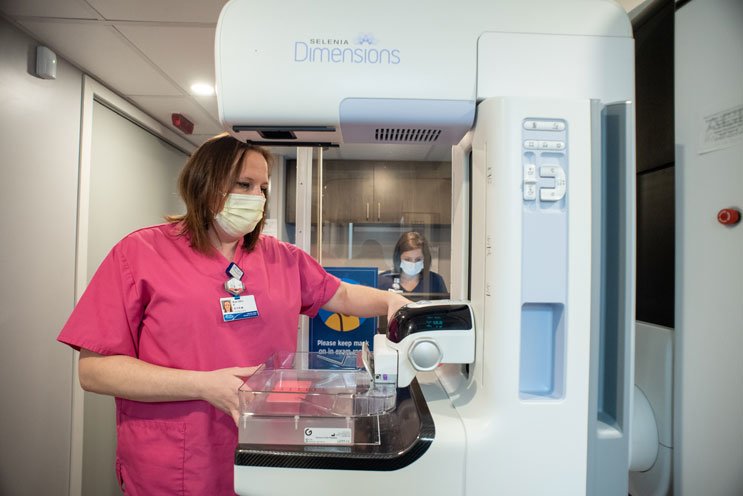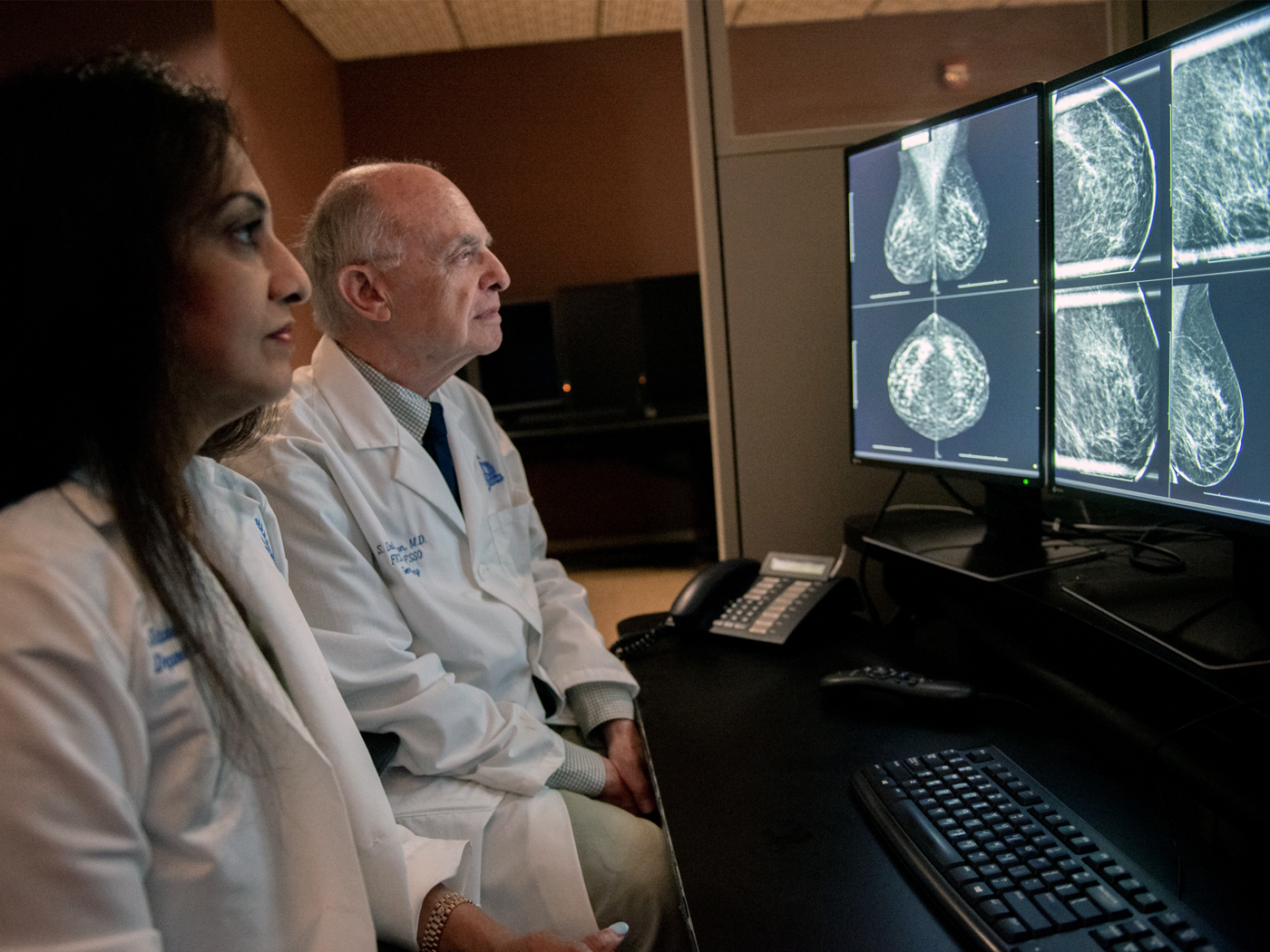Schedule Your Mammogram Online
It's quick and convenient to make your appointment online at any of our locations, where we are committed to keep you safe during your visit!
Breast cancer is the most common cancer among women. About 1 in 8 women will be diagnosed with breast cancer in their lifetimes.
Fortunately, advances in screening methods, diagnoses and treatments have led to an increase in survival rates. In fact, 90 percent of all breast cancer cases are now treatable. But successfully managing your risk for breast cancer depends on having accurate, up-to-date information about your breast health.
Our breast cancer team includes specially trained radiologists and genetic specialists who provide unmatched expertise in breast cancer screening and detection, as well as management of patients at high risk for breast cancer.It's quick and convenient to make your appointment online at any of our locations, where we are committed to keep you safe during your visit!

Breast cancer can strike anyone. That makes breast health awareness critical for all women. Follow these steps to manage your breast cancer risk:
Regular breast cancer screening is vital for early detection and successful treatment. Breast cancer screening includes mammography (a specialized X-ray evaluation of the breast) and other advanced breast imaging exams. We offer mammography locations throughout Southeast and South Central Michigan with convenient day, evening and weekend hours.
We recommend that women at average risk for breast cancer begin annual screening mammograms at age 40. Regular mammograms reduce breast cancer mortality (death rates) by 20 to 30%. Mammography is not perfect. It is important to know that some cancers will be invisible on mammograms, and this is why general awareness of new lumps or changes in the breast is important.
Since the likelihood of developing breast cancer increases with age, it is more likely that a mammogram will identify a breast problem in an older woman. Breast cancer can, however, occur in young women, making breast health awareness important for women at any age.
Learn more about our breast cancer screening tests.Genetic testing can help you make important decisions about your care by helping you understand your personal and family risk of developing breast cancer. An estimated 5 to 10 percent of breast cancer cases are hereditary, meaning they run in the family.
In many cases, inherited cases of breast cancer (as well as ovarian cancer) are linked to changes in one or both of the breast cancer 1 (BRCA1) and breast cancer 2 (BRCA2) genes. Each year, about 16,000 cases of new breast and ovarian cancer occur in people with changes in these genes.
You should consider genetic testing for the BRCA1 or BRCA2 gene if you or a family member have/had:
Although breast cancer can develop in anyone, there are several factors you can control to help minimize your risk, including
Maintaining a healthy weight: Being obese can increase your risk for many types of cancer, including breast cancer. According to the National Cancer Institute, postmenopausal women who are obese are 20 to 40% more likely to develop breast cancer compared to women who maintain a healthy body weight.
Limiting alcohol consumption: Drinking alcohol increases your risk of developing breast cancer, according to the National Cancer Institute. The risk increases based on the amount of alcohol you consume: Heavy drinkers have a higher risk than light drinkers.
Avoiding tobacco use: While smoking is often linked with lung cancer, smoking can also increase your risk for a variety of other cancers, including breast cancer.
Exercising: In addition to its many other health benefits, regular exercise can lower your risk of developing breast cancer, as the American Cancer Society notes. You should get at least 150 minutes of moderate-intensity exercise or 75 minutes of high-intensity exercise each week, ideally with your activity spread throughout the week.
Breastfeeding, if possible: Although researchers are unsure of the reasons, multiple studies have shown that women who breastfeed have a lower risk of breast cancer.
Avoiding hormone use after menopause: As the American Cancer Society notes, researchers have found that taking certain types of hormones as part of hormone-replacement therapy to ease menopause symptoms is linked to an increased risk for developing breast cancer. These types of hormones are also linked to an increased chance for cancers that are larger and that have spread beyond the breast when they are discovered.
Certain risk factors can increase a woman’s risk for developing breast cancer. Women who are most likely to develop breast cancer have:
Race/ethnicity does affect your breast cancer risk:
If your screening indicates that you may have breast cancer, our nationally recognized, fellowship-trained breast cancer experts will be with you every step of the way, from further testing through your treatment and recovery.

We use cookies to improve your website experience. By using this site, you agree to our Terms of Use. Read our Internet Privacy Statement to learn what information we collect and how we use it.